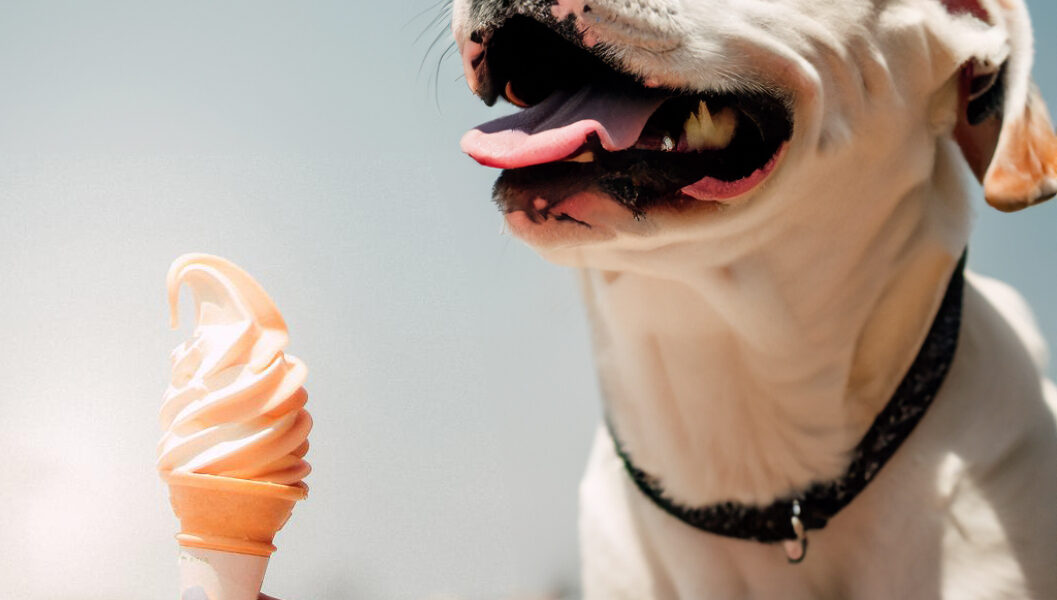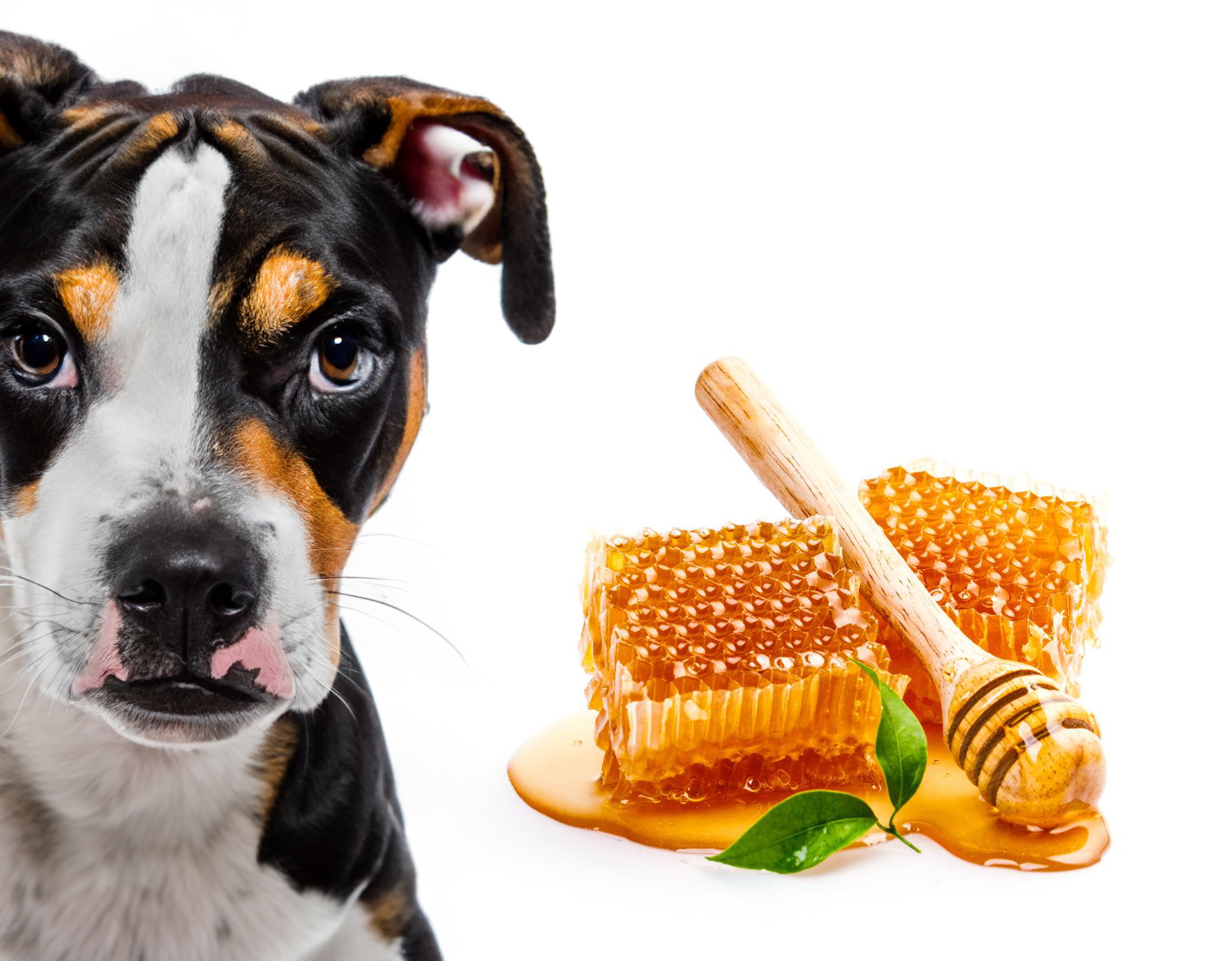Are you wondering if it’s safe for your pup to lick a delicious ice cream cone? We all love to share our treats with our four-legged friends, but before you let Fido indulge in an ice cream cone, it’s important to understand the potential risks. In this blog post, we’ll be exploring the scoop on dogs and ice cream cones—so keep reading to learn more!
What’s in an Ice Cream Cone?
Ice cream cones are a classic summertime treat enjoyed by many, but have you ever wondered what exactly is in that crispy cone? Well, let’s take a closer look and find out!
The main ingredient in an ice cream cone is typically flour. It provides the structure and texture that we all know and love. But it’s not just any flour; it’s usually a mixture of wheat flour, sugar, and oil. This combination creates a dough that can be molded into the cone shape and baked until crispy.
To add some extra flavor, some cones may also contain ingredients like vanilla extract or other flavorings. These are usually added in small amounts to enhance the overall taste.
But what about the potential allergens? Many ice cream cones are made with wheat flour, which can be a problem for dogs with gluten sensitivities or allergies. Wheat is a common allergen for dogs, and consuming it can lead to symptoms such as itching, digestive upset, and even skin rashes.
Additionally, some ice cream cones may also contain traces of nuts or other potential allergens, so it’s important to check the ingredients list if your dog has any known allergies.
Overall, while the ingredients in an ice cream cone may not be inherently harmful to dogs, it’s essential to consider any potential allergens or sensitivities before sharing this treat with your pup. In the next section, we’ll dive deeper into whether or not dogs can safely eat ice cream cones, so keep reading to find out!
Can Dogs Eat Ice Cream Cones?
If you’re eagerly waiting to find out if your pup can safely indulge in an ice cream cone, then you’ve come to the right section! While it may be tempting to share this tasty treat with your four-legged friend, there are a few factors to consider before giving the green light.
The primary concern when it comes to dogs and ice cream cones is the potential for digestive upset. Most ice creams contain dairy products, such as milk or cream, which can be difficult for dogs to digest properly. Dogs have a limited ability to break down lactose, the sugar found in milk, and consuming too much of it can lead to stomach discomfort, bloating, and diarrhea.
Additionally, some dogs may have allergies or intolerances to dairy products. Signs of an allergic reaction can include itching, hives, swelling, and even difficulty breathing. It’s important to keep a close eye on your pup after they’ve consumed any dairy products, including ice cream cones, to monitor for any adverse reactions.
Another consideration is the potential for weight gain and obesity. Ice cream cones are often high in sugar and calories, which can contribute to weight gain in dogs if consumed regularly. Maintaining a healthy weight is crucial for your dog’s overall well-being and can help prevent various health issues.
Ultimately, while it’s not recommended to give your dog an ice cream cone, there are alternative treats available that can provide a similar indulgence without the potential risks. We’ll explore some of these options in the next section, so keep reading to discover safe and tasty alternatives for your pup to enjoy!
Risks Associated with Feeding Your Dog an Ice Cream Cone
Now that we’ve explored the ingredients in an ice cream cone and whether or not dogs can safely eat them, let’s talk about the risks associated with feeding your dog this tasty treat.
One of the main risks of giving your pup an ice cream cone is the potential for digestive upset. As we mentioned earlier, most ice creams contain dairy products that can be difficult for dogs to digest properly.
This can lead to stomach discomfort, bloating, and diarrhea. While some dogs may be able to handle small amounts of dairy without any issues, others may be more sensitive.
Another risk is the potential for allergic reactions. Dairy products are a common allergen for dogs, and consuming them can lead to itching, hives, swelling, and even difficulty breathing. If you notice any of these symptoms after your dog has eaten an ice cream cone, it’s important to seek veterinary attention right away.
Lastly, there’s the risk of weight gain and obesity. Ice cream cones are often high in sugar and calories, which can contribute to weight gain in dogs if consumed regularly. This can lead to various health issues such as diabetes, joint problems, and heart disease.
Given these risks, it’s generally best to avoid feeding your dog an ice cream cone. But don’t worry, there are plenty of safe and tasty alternatives available for your pup to enjoy. Let’s explore some of these options in the next section!
Signs Your Dog May Be Allergic or Intolerant to Dairy Products
While dogs may love the taste of dairy products like ice cream cones, not all pups can tolerate them. It’s essential to be aware of the signs that your dog may be allergic or intolerant to dairy so that you can avoid any discomfort or potential health issues.
One of the most common signs of a dairy allergy in dogs is itching. If you notice that your pup is scratching excessively, especially around their face, ears, or paws, it could be a sign that they’re having an allergic reaction. Other symptoms may include redness, hives, or even hair loss in some cases.
Digestive issues are also common in dogs with a dairy intolerance. If your dog experiences diarrhea, vomiting, or has an upset stomach after consuming dairy products like ice cream cones, it’s a good indication that they may not be able to handle lactose.
In severe cases, dogs with dairy allergies may also experience respiratory symptoms like difficulty breathing or coughing. If you notice any of these signs after your dog has had an ice cream cone, it’s crucial to consult your veterinarian for proper diagnosis and guidance.
Remember, every dog is different, and while some may have no issues with dairy, others may have severe reactions. It’s always best to err on the side of caution and avoid giving your pup ice cream cones or any other dairy products if you suspect they have an allergy or intolerance. Your furry friend will thank you for looking out for their well-being!
Alternatives to Ice Cream Cones for Your Pup to Enjoy
If you’re looking for safe and delicious alternatives to ice cream cones for your furry friend, you’re in luck! There are plenty of options that will have your pup drooling with excitement.
One great alternative is frozen yogurt. Many pet stores carry frozen yogurt specifically made for dogs, which is often free of dairy and other common allergens. These frozen yogurt treats come in various flavors, like peanut butter or banana, and are a tasty way to cool off your pup on a hot day.
Another option is making homemade frozen treats. You can blend together ingredients like mashed bananas, natural peanut butter, and plain yogurt, then freeze the mixture in ice cube trays or silicone molds. These frozen treats are not only refreshing, but they’re also customizable to your pup’s preferences and dietary needs.
If you’re in a rush and don’t have time to make homemade treats, there are also pre-packaged frozen dog treats available. Look for ones made with natural ingredients and without any artificial flavors or preservatives.
Lastly, don’t forget about good old-fashioned ice cubes! Plain ice cubes are a simple and hydrating treat for your pup. They can be especially refreshing on hot summer days.
Remember, it’s important to always introduce new treats slowly and in moderation. Keep an eye out for any signs of allergies or intolerances, and consult your veterinarian if you have any concerns. With these alternative treats, your pup can enjoy a cool and delicious snack without the potential risks of ice cream cones.





